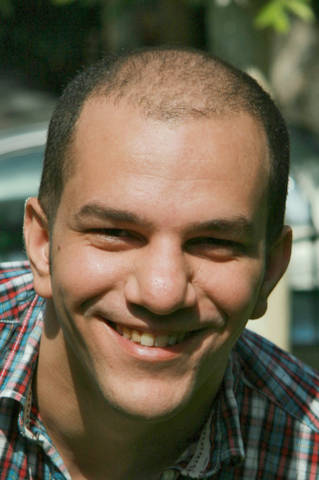Opposing the Egyptian opposition
By Osama Diab
The ornamental ‘official opposition' in Egypt is as dangerous as the authoritarian regime itself.
Thursday 13 October 2011
Even though I was quite clearly no big fan of the ousted president Hosni Mubarak, I wasn't very keen on any of the official opposition during his era either and I never saw any of these parties as a viable alternative to his rule. The reason I describe it as the “official opposition” is to distinguish it from the movements and people who contributed greatly to shaping a new, more dynamic Egyptian political scene and have emerged from outside the traditional political parties and organised political groups.
The perceived lack of alternatives was not indicative of an actual absence. The ineffectiveness of the opposition wasn't an accident or a pure coincidence, it was a deliberate strategy of the Mubarak regime which always endeavoured to purge any meaningful opposition from the political scene.
For Mubarak, what was more important than choosing his ministers and consultants was selecting those who, on paper, stood against him and his ruling party. In order for the opposition to serve its purpose as deemed by the regime, their leaders needed to be dull, highly uncharismatic, distant, lacking in vision and, most importantly, unwilling in any way to challenge his authority.
Mubarak's tamed and carefully selected opposition – regardless of its position on the political spectrum – used to praise his wisdom in running the country day and night. Some presidential candidates in the 2005 election, such as the leader of the miniature Ummah party Ahmed al-Sabahi – a 90-year-old spring chicken at the time who insisted that everyone call him Mr President and vowed to reintroduce the fez – even went as far as to say that he would vote for Mubarak because he found him to be the best candidate.
This opposition, knowing no other role, are still prisoners of this subservient ‘court jester' mentality. Even though Egypt has seen radical changes and a revolution, they seem to be programmed to serve the same purpose with any ruler. They are now serving the ruling Supreme Council of the Armed Forces (SCAF) in the same way they served and were loyal to Mubarak.
After SCAF's meeting last week with political parties led by al-Wafd and the the Muslim Brotherhood's Freedom and Justice party, the political parties signed a document in which they “declared their full support for the Supreme Council of the Armed Forces and their appreciation of its role in protecting the revolution”.
This also explains why the real opposition and revolutionary forces were not invited to the meeting. The youth movements, such as the 6 April Youth Movement, which was the real driving force behind the revolution, were not invited because their radical mentality makes it obvious they won't settle for a few cosmetic concessions in return for a few seats in parliament. They are also more likely not to recognise the SCAF as Egypt's legitimate rulers.
Al-Wafd, the Brotherhood and other forms of official opposition have a long history of abandoning the struggle in return for a few parliamentary seats or even just the permission to exist, and some are infamous for striking deals with successive regimes. New youth revolutionary groups are yet to be corrupted, but until this happens, they will stay unrecognised and uninvited by the SCAF and any authoritarian ruler. I still remember when the former heir apparent Gamal Mubarak mocked a man who dared to ask him, when he still had a senior position in the National Democratic Party, if he was willing to engage in a dialogue with opposition youth groups.
Most of the parties which met with the SCAF to discuss the future of the country did not play an active role in the sweeping revolution, some even actually worked against it, while others were cautious participants who steered clear of the front line. The Brotherhood and other official opposition parties did not risk officially joining the revolution until they were sure Mubarak's days in power were numbered, and only then did they decide to jump opportunistically on to the revolutionary bandwagon.
Just like the previous regime, SCAF want a malleable opposition they can control . It seeks an opposition that will help them stay in power rather than compete with them for power, and that is willing to abandon its ideals for representation in parliament. In short, what the SCAF wants is an opposition they can trust.
The SCAF has made clear its intentions that it is here to stay, and by signing this document the official opposition helped the generals to anchor their position as the long-term rulers of the country, rather than its interim leadership for the six-month transitional period like they promised after the revolution.
I am sceptical that the official opposition under the Mubarak regime which has now switched to admiring the emperor's new clothes can deliver any meaningful change. Though it calls itself the opposition, it is actually an integral component in the survival of a corrupt political system many are working hard to reform or remove.


